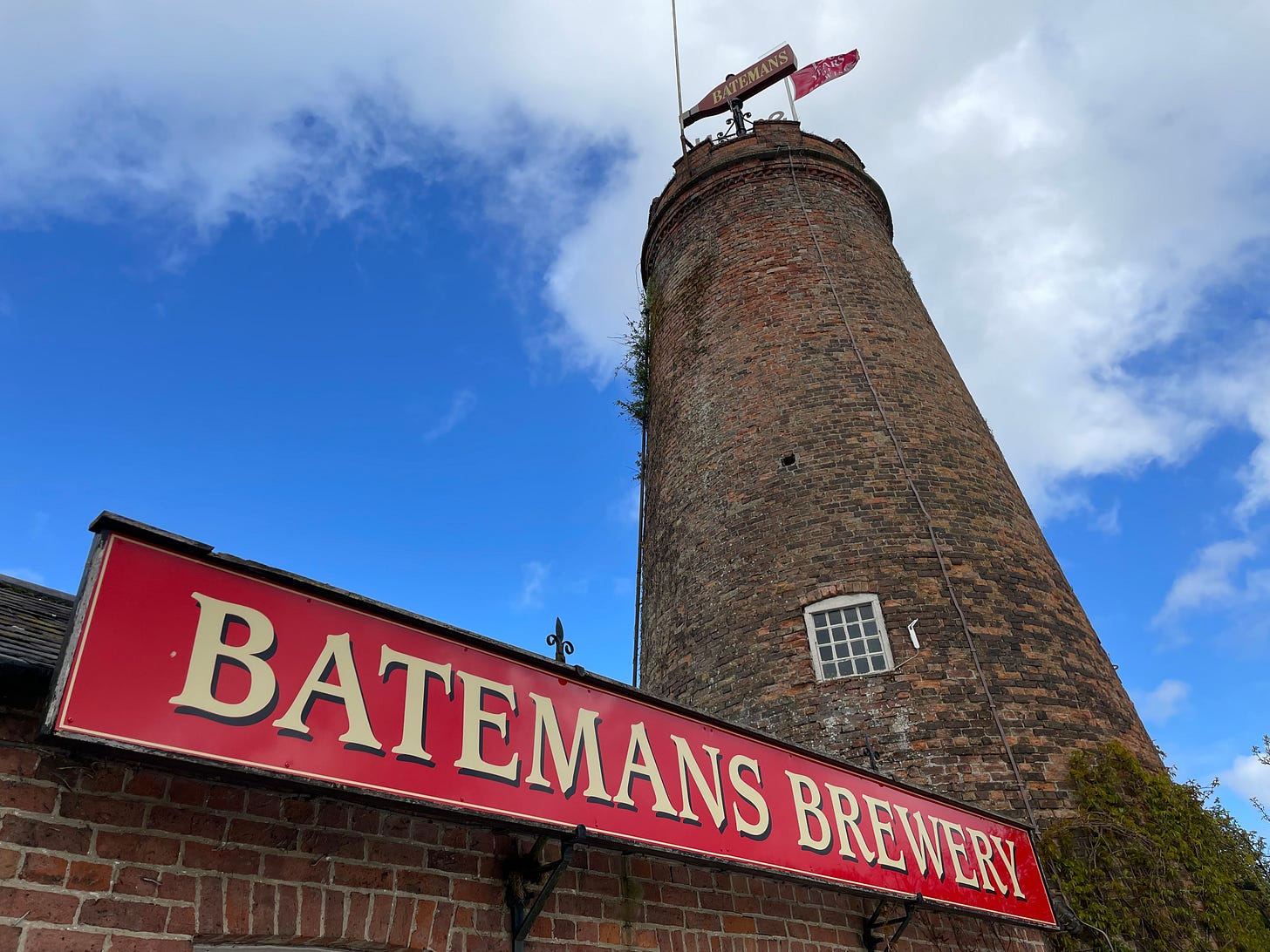Batemans sails through the winds of change
By Phil Mellows
Lincolnshire spread languidly under a big, dirty, dishcloth-grey sky that morning, the horizon punctuated only by the occasional copse and church spire until the town of Wainfleet All Saints rises up from the flatness.
At the end of the high street, the old windmill at the heart of Batemans Brewery, and the hub of the firm’s 150th birthday party, is a grand landmark in these parts despite losing its sails many decades ago.
They came from across the country to celebrate not simply this impressive anniversary but, it seemed, all the UK’s family brewers. Even the sun made an appearance in the afternoon.
Fifteen of Batemans’ peers were represented, from the 326-year-old Shepherd Neame to the relatively youthful Charles Wells, now known as Wells & Co, a mere 148. Between them all, 2,800 years of brewing, as joint managing director Stuart Bateman noted in his speech.
Not included in his list was Titanic Brewery, founded in 1985 by brothers Keith and Dave Bott, but Keith was a guest speaker (alongside athlete Kriss Akabusi), perhaps a nod to a younger generation and certainly a reflection of a great spirit of collaboration in British brewing.
There aren’t many industries in which rivals get together to wholeheartedly toast each other’s success. And mutual support doesn’t stop there. It’s a tradition that the sons and daughters of brewing families work at other breweries before bringing that experience home. So the emergent fifth generation of brewers at Batemans, Stuart’s sons Harri and Ed, have respectively trained at Laine, Marstons and Castle Rock, and JW Lees and Robinsons.
Of course, these friendly relations are helped by the fact there’s little overlap in the geographies covered by most of the companies, but there’s also a deep sense of camaraderie, of the need to help each other out in moments of adversity.
There have been casualties among the family brewers, and others have been forced to adapt to modern circumstances, often in drastic fashion. Everards, Thwaites, Hydes and Wells are among those that have, for instance, abandoned their unwieldy old breweries to focus more efficient, stripped back, production on a new site.
But their resilience as a group has surprised many industry pundits, squeezed as the sector is between global brewing and the nimbleness of the micros, and they make a crucial contribution to the distinct character of the British brewing scene, most notably keeping alive a rich variety of cask beers – and quite a lot of heritage pubs, too.
Batemans itself was almost lost in the mid-1980s, and when it came through intact, minus a slice of its pub estate, after a three-year battle, it was something for the whole industry to celebrate. Since then, Stuart and his sister Jaclyn have steered a course combining change and continuity to build a strong business, which now includes a visitor centre and bar hosting tours and events in the atmospheric windmill where the old brick walls curve around you comfortingly.
Wainfleet isn’t the easiest place to get to, though there are slow trains out of Skegness and Nottingham, but when you arrive you feel you’ve found a beer destination that’s a bit special. A place that hard capitalist logic suggests shouldn’t still be here at all.



